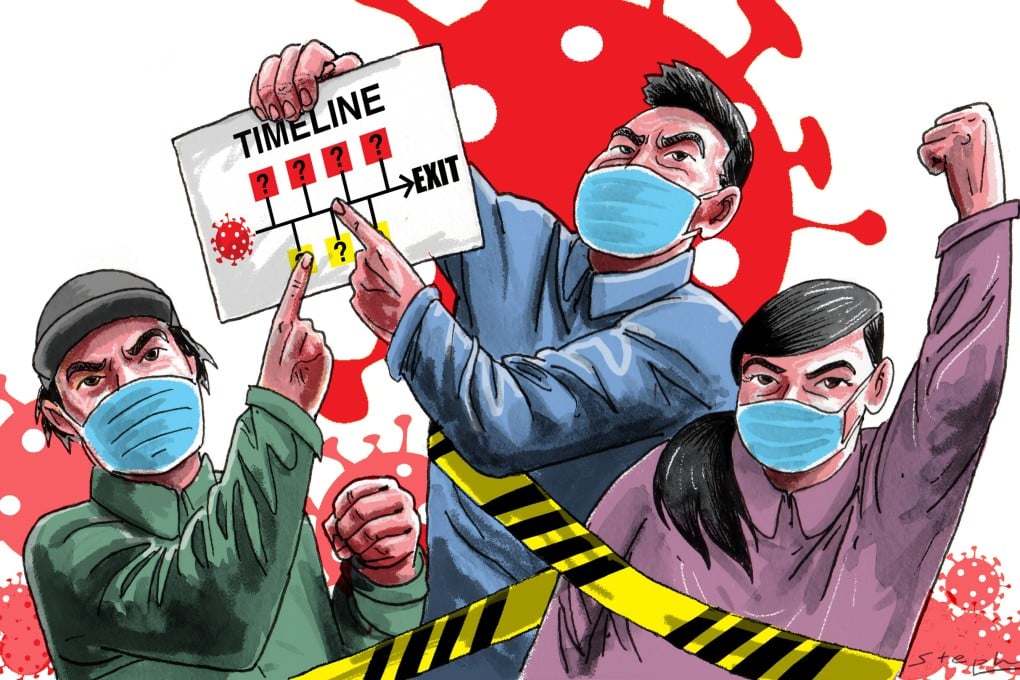Advertisement
Opinion | China needs a timeline for ending zero-Covid to regain public trust
- Beijing’s Covid-19 containment strategy relies heavily on public cooperation, but after almost three years of lockdowns, frustrations are mounting
- While China is in no position to safely open up right away, it can admit to mistakes, ask for patience and provide a timeline for ending restrictions
Reading Time:3 minutes
Why you can trust SCMP
18

As people in China find themselves navigating endless lockdowns, public criticism of “zero-Covid” is increasing. For the Communist Party leadership, this stunning reversal from an initial victory against Covid-19 shows just how bad things can become if you lack a long-term strategy.
After the original outbreak in Wuhan, the party defied preliminary assessments in the West to emerge victorious against Covid-19. This success, contrasted with the tragic toll of the global pandemic, became a new pillar of legitimacy for the party.
But from a geopolitical perspective, Covid-19 was devastating for China: its global image was shattered as nations blamed it for the pandemic. US-China relations deteriorated more in 2020 than in the previous three years and many foreign governments became more hawkish on China. Internally, the party might have won the epidemic, but, externally, China lost the pandemic.
Advertisement
Almost three years later, it seems the party is also starting to lose. Beijing’s anti-epidemic narrative has centred on the efficiency of its political system, which is supposedly better suited than democratic governments to both identify the interests of the people and marshal the resources needed to advance them.
But the endless lockdowns and the tragedies that have emerged from them have slowly undermined this narrative. Instead of an enlightened government that protects its people, Beijing is now pictured as an ideological zealot.
Advertisement
The “dynamic zero-Covid” policy is increasingly seen not as a strategy based on scientific fact, but one driven by political interests.
Advertisement
Select Voice
Choose your listening speed
Get through articles 2x faster
1.25x
250 WPM
Slow
Average
Fast
1.25x
